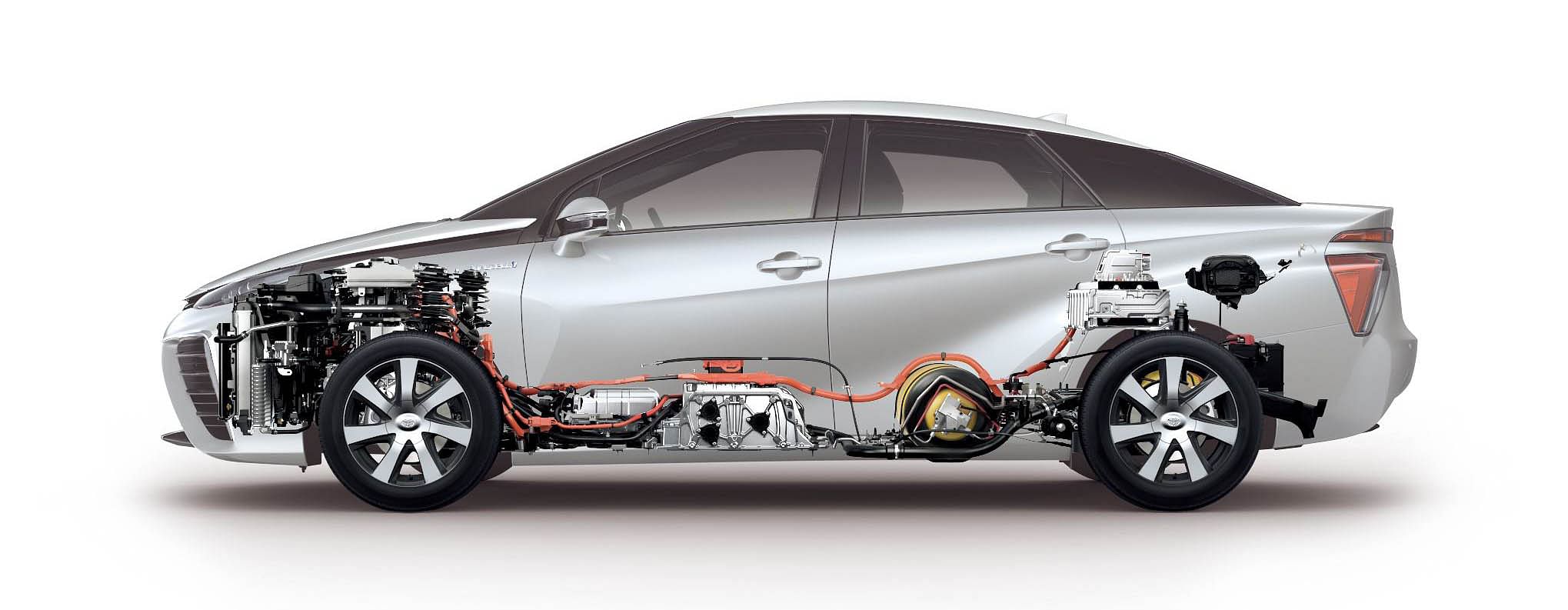Toyota bats for technology-agnostic approach for EV push in India
Shekar Viswanathan, vice-chairman and director, Toyota Kirloskar Motor, calls India's all-electric mobility mission impractical and says customers should be given a vehicle-buying choice and not a soely EV-driven mandate.
Pollution along with dependency on non-renewable fuels is a global challenge and transition towards sustainable and greener mobility has become the need of the hour. The world over, governments in both developed and emerging markets are working on finding the best fit solution for the challenge of growing pollution.
India, which is one of the biggest importers of crude oil for meeting its energy needs, has an ambitious goal of going all-electric by 2030. Amid the ongoing debate on the government's intent, a senior official from Toyota Kirloskar Motor has suggested a technology-agnostic approach, and letting consumers have a choice along with giving them the independence to offer the best solution that they can provide.
Speaking to PTI, Shekar Viswanathan, vice-chairman and director at Toyota Kirloskar Motor, said: “Consumers should be given freedom to make a logical choice, and manufacturers enough leeway so that they can produce what the consumer wants.”
Viswnathan is of the opinion that the government's ambitious target of achieving an all-electric fleet from 2030 is "not practical, and it is not the way forward." He argues that EVs alone are not the best answer to curb vehicular pollution, stating that customers who have a certain distance to travel daily will choose electric, and those who do not have a fixed schedule, may choose hybrid.

Above: The Toyota hydrogen fuel cell Mirai.
According to Viswanathan, "In times to come, others may choose hydrogen because there is zero pollution in hydrogen vehicles. So, I think the government has to recognise this, be technology-agnostic, and encourage all techologies and fix the tax rates accordingly."
He added,"All technologies must be encouraged because nobody knows which technology is going to succeed."
He suggested that technologies that generate more pollution have to be discouraged through suitable fiscal disincentives, while those which minimise the amount of pollution should be encouraged by way of fiscal incentives. "I don't think electric vehicles is the immediate answer. Yes, there will be a certain percentage of vehicle population which will have electric, but we still have to rely on the internal combustion engine, hydrogen vehicles and hybrid vehicles for the remainder," said Viswanathan.
Asked if India should avoid rushing into an era of EVs, he said, "If that is what the consumer wants, the rush will happen on commercial terms but if you (government) mandate that I will give a huge tax incentive for electric but I will penalise hybrid which is very friendly in terms of pollution levels, then it is not a level playing field. So, the government needs to recalibrate the tax on hybrids, particularly on strong hybrids which function like electric vehicles.”
"The important point is not whether we will be driving hydrogen vehicles, or continue with internal combustion engines or move to pure electric or hybrid. The point is, are you giving enough freedom for consumers to make a logical choice, and therefore, are you giving the producers of such vehicles enough leeway so that they can produce what the consumer wants?"
"You have to give a bouquet of options to car customers and the customer will choose. Now, if you penalise obviously polluting vehicles, which run on BS-III and BS-IV, BS-II and BS-I, they need to be removed from the roads first, and I wish the government takes action on that," he adds.
"Today you have this lopsided tax structure where electric vehicles attract 12 percent tax, and hybrids are treated like sin goods," he pointed out.
According to him, major car players in the world have all the technologies -- electric, hybrid and internal combustion engine and all of them BS VI and they will progress towards BS VII, given they get very clean fuel.
"But to commercialise and make it a practical proposition for the consumer, we have to stitch it by market-to-market," he states.
Viswanathan believes that given the current situation in some parts of the country, EVs may succeed because of enough charging infrastructure, adequate power and a grid that is able to withstand surges in power drawing, among others.
But he queries, "Is it possible across India? I don’t think so. Because in certain pockets of India you don’t have power, let alone quality power. I think it is better to take a cautious, practical approach than making grand statements that we will be 100 percent electric (from 2030)."
"You cannot say EVs are not polluting at all if you are going to generate power from coal-fired power stations. There will be pollution then. You have to measure this on well-to-wheel basis and you have to measure total pollution for each form of transport and then fix the taxes accordingly. So, more polluting ones should be penalised more and less polluting ones should be penalised less," he concluded.
RELATED ARTICLES
Cosmo First diversifies into paint protection film and ceramic coatings
The Aurangabad, Maharashtra-based packaging materials supplier is leveraging its competencies in plastic films and speci...
JSW MG Motor India confident of selling 1,000 M9 electric MPVs in first year
The 5.2-metre-long, seven-seater luxury electric MPV, which will be locally assembled at the Halol plant in Gujarat, wil...
Modern Automotives targets 25% CAGR in forged components by FY2031, diversifies into e-3Ws
The Tier-1 component supplier of forged components such as connecting rods, crankshafts, tie-rods, and fork bridges to l...






 By Autocar Professional Bureau
By Autocar Professional Bureau
 29 Dec 2017
29 Dec 2017
 5349 Views
5349 Views









